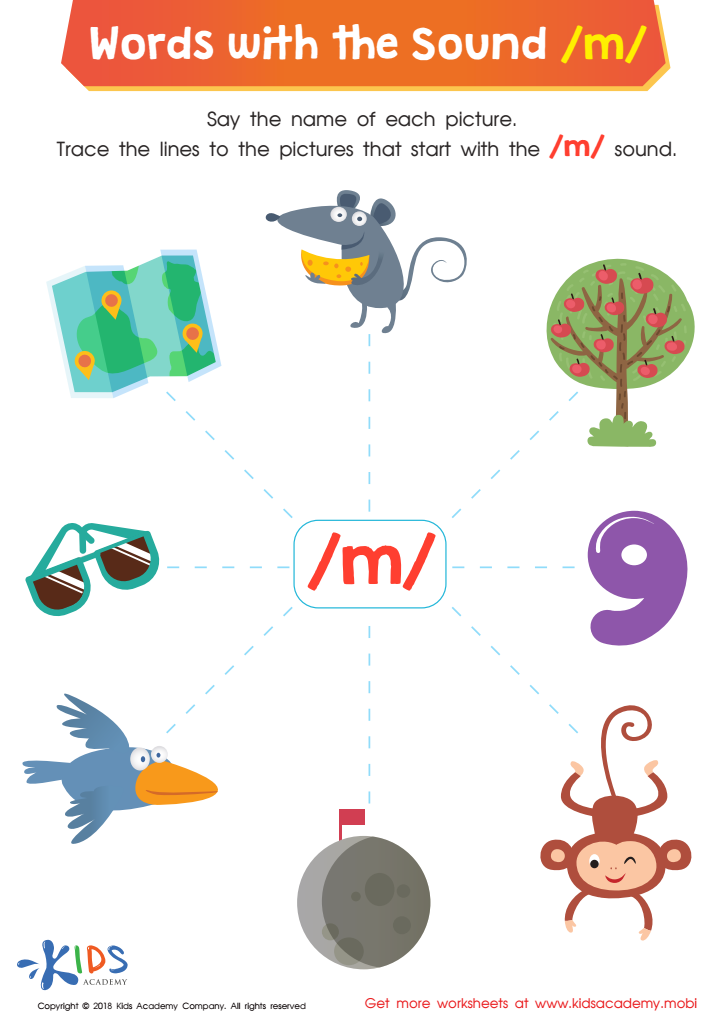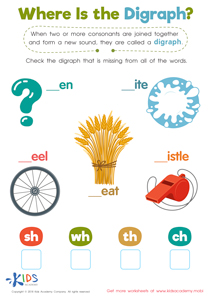Phonics practice Beginning Consonants Worksheets for Ages 5-6
4 filtered results
-
From - To
Introducing our "Phonics Practice Beginning Consonants Worksheets" designed specifically for children ages 5-6! These interactive worksheets aid young learners in mastering the fundamentals of phonics by focusing on beginning consonant sounds. Each worksheet features engaging activities that not only promote letter recognition but also strengthen reading and writing skills. Ideal for teachers and parents, these resources create a fun learning environment where children can explore phonics through colorful illustrations and exciting games. Help your child build a solid foundation in language skills with our beginner-friendly worksheets, perfect for enhancing phonemic awareness and fostering a love for reading!


Twin Onset Worksheet


Words with sound p Reading Worksheet


Words with sound f Reading Worksheet


Words with Sound M Reading Worksheet
Phonics practice, especially focusing on beginning consonants, is crucial for children aged 5-6 as it lays the foundational skills necessary for early reading and writing. At this age, children are developing their phonemic awareness—the ability to hear, identify, and manipulate individual sounds in spoken words. Understanding beginning consonants helps children decode words, enabling them to read independently and with confidence.
Effective phonics practice enhances vocabulary development and improves spelling, allowing children to express themselves more clearly in writing. When children grasp the sounds associated with letters, they can successfully sound out new words, bridging the gap between spoken and written language.
Furthermore, early exposure to phonetic patterns fosters a love for reading. Engaging activities such as games, rhymes, and songs related to beginning consonants make learning enjoyable and interactive, promoting positive attitudes towards literacy.
Teachers and parents play a pivotal role in reinforcing these practices at home and in the classroom. By prioritizing phonics, they not only support children’s academic growth but also instill crucial skills that will benefit them throughout their educational journey. Ultimately, focusing on beginning consonants helps children develop a strong literacy foundation, encouraging lifelong learning and communication.

 Assign to My Students
Assign to My Students










